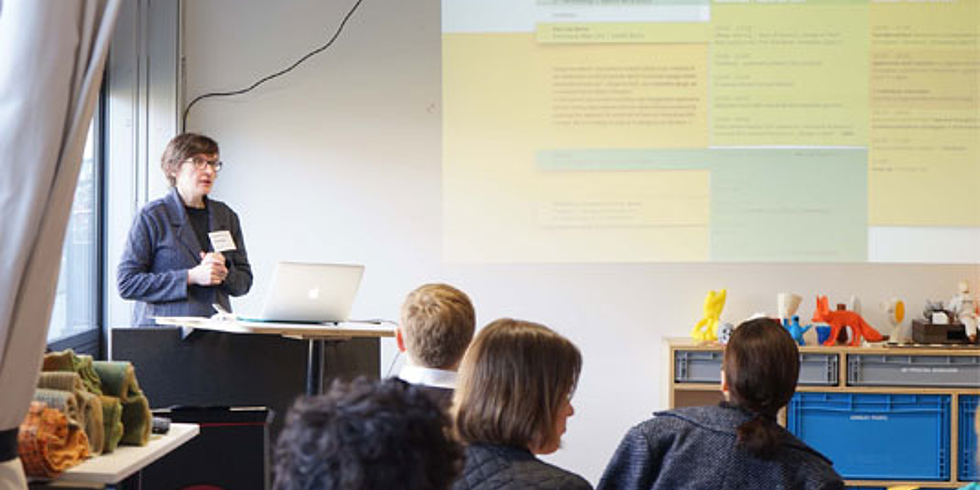Anastasia Zagorni of DesignFarmBerlin
Developers, business economists and sales managers – the founding team seems to be complete. Far from it! Anastasia Zagorni, coordinator at DesignFarmBerlin, tells Projekt Zukunft why designers should play an integral role in a startup right from the beginning. The accelerator supports design-related startups founded at Weißensee Kunsthochschule Berlin.
For anywhere between three to nine months, DesignFarmBerlin supports founders who have completed their studies at Weißensee Kunsthochschule Berlin, through a monthly scholarship. During this time, the founders will be given access to a coach as well. What else can participants expect from this programme?
We only support a few carefully selected founders. This enables us to offer a custom-made programme that includes individual consulting relating to economic issues, networking with cooperation partners and professional, industry-related talks. After all, there’s a variety of different founding models: Startup “Shortcut“, for instance, focusses on a concrete product – digital prostheses – while startup “UXFTT“, founded by Esther Zahn, offers competencies in the area of digital fashion. The time during which startups receive support, approximately nine months, is short. One has to consider carefully which activities to concentrate on.
Can you give us some more information on the two founding models you mentioned?
We basically distinguish whether founders offer a product tailored to specific needs or a portfolio of services.
Do you have any special tips for applicants?
DesignFarm concentrates on design-in-tech projects which already have a proof of concept, meaning that initial samples or prototypes have been made available. The application process consists of three steps: profile, complete application and a two-day workshop with representatives from industry and research. We would like to see how applicants tackle economic issues and how adapted they are to taking in new impulses. The workshops are a means to facilitate an exchange with people who have successfully gone through the process of founding a company. This is how we motivate people to found their own companies.
One of the projects you supported was HALO by Charlotte Dachroth and Ole Jeschonnek. Their technology creates three-dimensional light spheres hovering in the air. HALO was awarded the CreativeTech award by Projekt Zukunft. How important are awards and how did the team react to this special distinction?
We supported HALO from the start and we were very happy when it became a success. Now HALO has to concentrate on launching their product on the market. In any case, awards can reassure founders that they are working on exciting products. Awards generate media attention and help applications such as HALO get publicity.
How vital is the interdisciplinary academic landscape in Berlin to the creation of innovative products and services and why do well-trained designers play a special role in this?
Universities are an important component of the startup ecosystem in Berlin. Interdisciplinary founding teams often consist of fellow students who have known each other for years. It is rare to have such a connection that is both professional and personal later in life. Designers have the ability to put technical innovations in a user-centric context. They make innovations palpable for users, a trait that should make them an inherent part of any team.
Are there any other characteristics that make the ecosystem in Berlin stand out from other innovation hubs?
There is something fundamentally open and diverse about the ecosystem in Berlin. We concentrate our efforts on sustainability: we try to embed startups in existing industries, we offer follow-up financing, in particular for capital-intensive projects and, naturally, we aim to leverage specific design competencies and to advance design-in-tech in Berlin.
Finally, could you please complete following sentence?
Berlin is...
...a real-world lab.
Contact
Tanja Mühlhans
Leitung Kreativ- und Medienwirtschaft, Digitalwirtschaft, Projekt Zukunft


